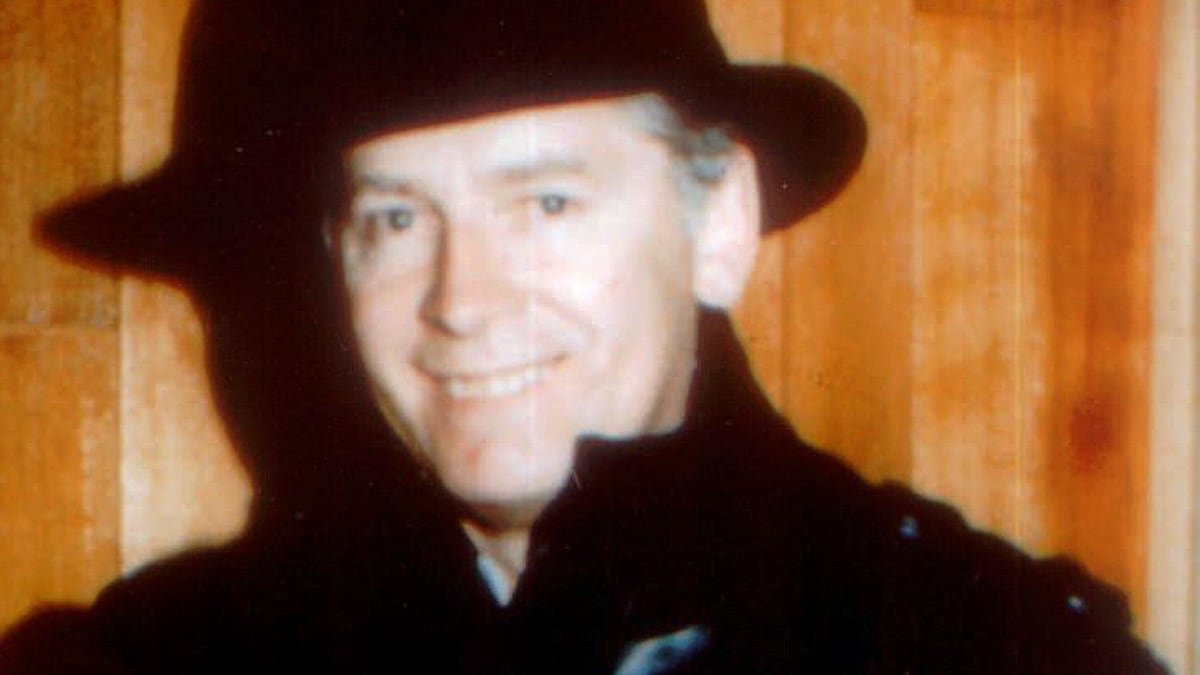James “Whitey” Bulger, now 82, is the Al Capone of Boston. A fugitive since 1995 who seemed untouchable, he is also compared to the “Teflon Don” of New York, John Gotti. His brother, Billy Bulger, was once the most powerful political figure in Massachusetts. "Whitey" was an FBI informant for decades while ruling the Irish organized-crime world. He made millions from rackets and drugs and committed an untold number of murders to keep his empire safe. A legendary figure, he was finally outed by the press, law enforcement, and his partners in crime.
On June 22, he was arrested in Santa Monica, California, with his longtime girlfriend, Catherine Greig. The seizure of weapons and more than $800,000 in cash was no surprise, but the arrest itself was stunning.

As a Massachusetts lawyer during the “Bulger years,” I wanted to contact the former Massachusetts State Police officers of the Major Crime Unit who spent years going after Bulger and his partner, Stephen Flemmi. After risky work and countless hours of surveillance, whenever they got close, they were sabotaged. The bad guys always knew when they would get caught and simply disappeared from the place being watched or became awfully quiet, as if their evil words could disappear as well. The Major Crime Unit was made of dedicated officers—working with them was a prosecutor’s dream. They believed they could make a difference to life in Boston—they would not give up.
Recently, I spoke with three of the best—Bob Long, Rick Fraelick, and Jack O’Malley. Intrepid Bob Long was in charge. One of the best detectives I ever knew, he wanted Bulger and Flemmi off the street. He said, “It all began with Operation Lobster. That’s the last time we worked well with the FBI.” “Lobster” was a joint federal-state investigation, which I prosecuted in the late '70s when New England was the truck-hijacking capital of the U.S. Long had a terrific relationship with FBI agent Dave Brady as they spearheaded the successful effort. Fraelick, also on the team, “actually thought we were all in this together.” Eventually, Long and Brady found a guy who could cooperate against Flemmi, so they went to John Morris, supervisor of the FBI Organized Crime Squad. Morris was not interested; Long and Brady were shocked. Little did they know that Morris was corrupt and weak, associated with Bulger and Flemmi—and FBI informants who owned him and their primary handler, flashy FBI agent John Connolly.
Their story is a tale of Boston. It began with a scrap of paper: two phone numbers, a name, and a location. They staked out the Lancaster Street Garage by staying in a flophouse nearby in an area populated by the homeless and mentally ill, whispering in rooms separated by wood panels while crazy people screamed next door. Long recruited O’Malley by testing his knowledge of Flemmi and Bulger. The heat and hours were overwhelming. They changed glass in the old windowpanes to get a decent picture. Fraelick learned to develop photos of Bulger and Flemmi meeting top organized-crime figures of New England outside and ushering them into the office. Fraelick borrowed a camper and cultivated a guy working there with a six pack of beer to get the camper into the garage overnight. O’Malley snuck inside to plant the bug and had to flee when the bad guys started moving around. O’Malley hid in the back of the van under piles of laundry and camping equipment for hours until he could finally emerge to open the door, exhausted and dehydrated. The bugs needed electricity to work and were placed in a radio, couch, and ceiling light. The one in the couch got crushed and the one in the radio kept picking up Mass General pager transmissions, so they had to plant better equipment. No sooner were the bugs planted that suddenly no business was ever conducted again in the office and Bulger commented about “the great job the state police are doing on the Mass Pike.” Soon, Bulger and Flemmi left the garage altogether.
At a party, drunk FBI supervisor John Morris slipped and told a Boston cop that Bulger and Flemmi knew he was working with the state police who had a bug in the Lancaster garage. Long was furious and determined to find how Morris learned what the bad guys knew or how he knew about it at all. The two agencies were now at war, finger-pointing about obstruction-of-justice charges.
Long ordered continuing surveillance while Bulger and Flemmi moved their business to phone booths outside a Howard Johnson’s on the Southeast Expressway. Again, days of video surveillance took place until they had enough evidence for probable cause to bug four pay phones. The bugs were planted and the conversation ended. The bad guys never used those phones again.
Today, Bob Long says that if Bulger and Flemmi had not been protected by the FBI, “then these nine murders would have never taken place: Louis Litif, Brian Halloran, Michael Donahue, Arthur “Bucky” Barrett, Debra Davis, Deborah Hussey, John McIntyre, Roger Wheeler, and John Callahan.” Long said he believes that Agents Morris and Connolly identified more than a dozen individuals to Bulger and Flemmi as FBI informants or could-be FBI informants and all of those people were killed. Connolly is now in prison; Morris received a grant of immunity for testimony.
Bob Long learned of Bulger’s arrest from his police officer daughter in the middle of the night. When he awakened, he thought he had dreamed it. He was “delighted.” Then Bulger was brought to federal court by helicopter, smiling at his brother, Billy, and joking with the magistrate. Long found the entire episode “disgraceful” and is “disgusted by the show. Bulger was brought in like a dignitary, a president, when he is a psychotic murderer.” Long wants Bulger to spend the rest of his life in prison. Whether he ever goes to trial is “irrelevant.” He wants him “to stay alive, dreaming of walking and reading his books on war at Carson Beach and Santa Monica Pier, when he can only read now in a cell.” Long remains “disheartened about the federal government’s treatment of the victims’ families where they won’t take responsibility for the actions of those corrupt agents as government employees. They are looking for any excuse not to pay the families the money they deserve."
Fraelick “didn’t think Bulger would ever be found alive. He was too much of a liability to people he’d been involved with. He was an embarrassment to the FBI.” Fraelick does “not see much hope for change with four generations of rogue FBI agents playing the same games. The whole thing makes me crazy every time I think about it.” O’Malley was furious: “Parading him around is nonsense. He’s a ‘has-been.’ You don’t need this major production now. A trial will be a circus. Marshals armed with machine guns in a crowd of innocent bystanders is ridiculous. Pay the families anyhow. It’s a travesty of justice to fight them tooth and nail about not filing on time when the government played a hand in not letting them know who was responsible.” As to Bulger’s cooperating, all three agree that “Bulger can only give up his brothers and that is never going to happen.”
All three were stunned that Catherine Greig was still alive because Bulger had a reputation for getting rid of women if they got in his way. They agree she must take responsibility for her years with Bulger. Long seems most sympathetic and Fraelick seems most angered—he thinks she, like Bulger, should not see the light of day unless she provides all of Bulger’s contacts while on the run. O’Malley said he thinks she no longer has anything to fear.
All three mention news about Mark Rossetti, charged as a mob boss who, like Bulger and Flemmi, was recently identified as an informant for the Boston FBI office while he allegedly committed crimes including extortion and heroin trafficking. Also, this year, 100 retired FBI agents signed a letter supporting John Connolly’s release. The good cops question “why there are no lessons learned.”
Rikki Klieman is an attorney with Klieman & Lyons in Boston. She is also a television legal analyst, former Court TV anchor, author, and public speaker.






